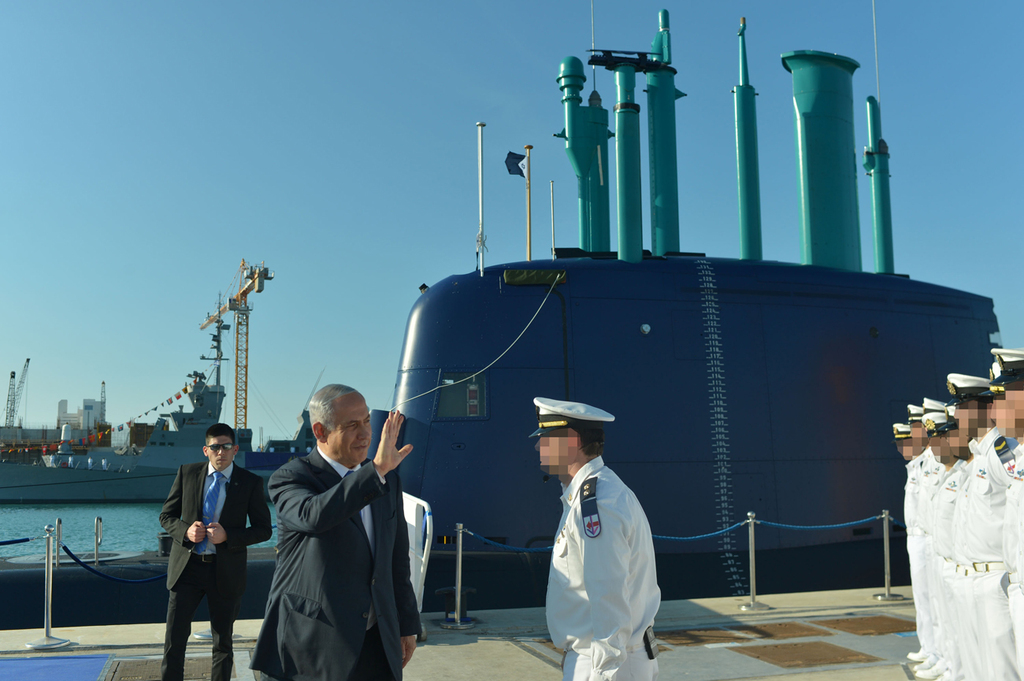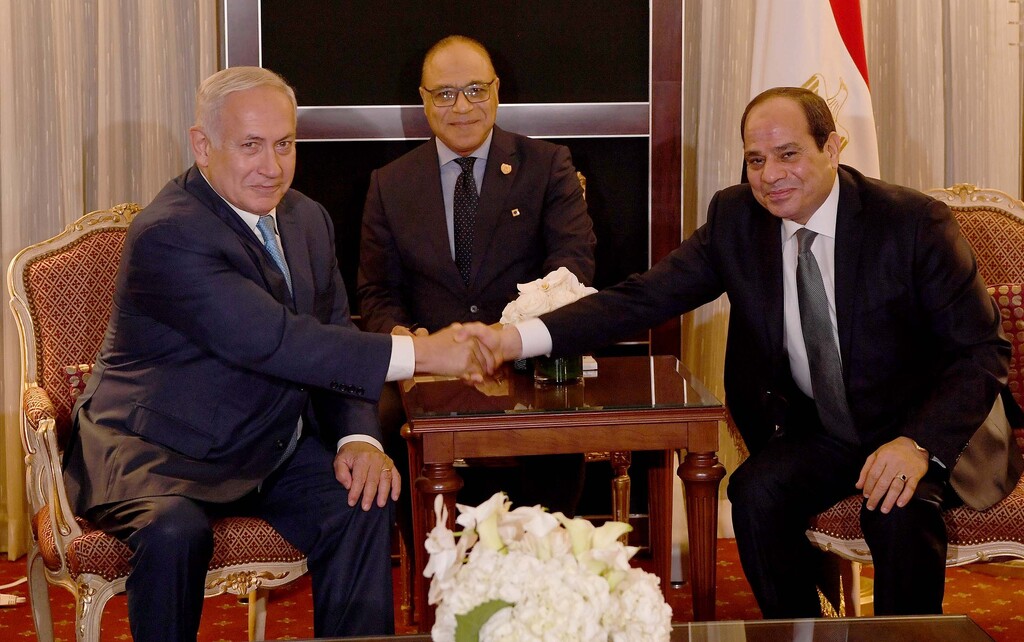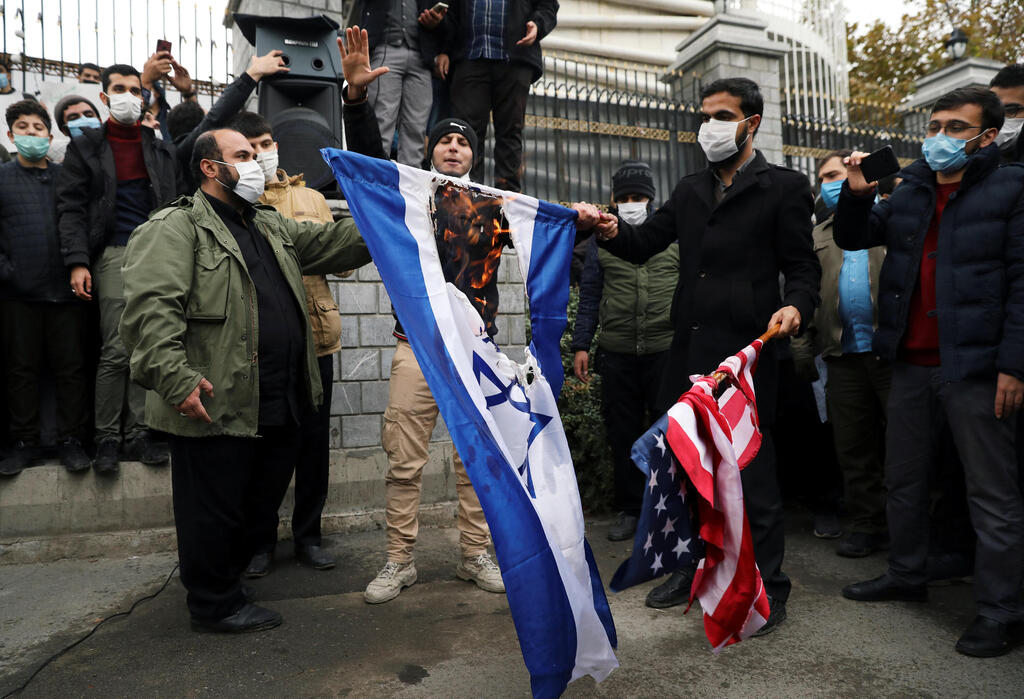Iran warned Sunday that it will not hesitate to react to any Israeli submarine is found in the Persian Gulf with a “strong and massive” response.
“Israel must know that our response to aggression against our national security will be strong and massive,” Abu al-Fadl Amoui, a spokesman for the National Security and Foreign Policy Committee of the Iranian Parliament, told Al-Jazeera Arabic.
3 View gallery


Prime Minister Benjamin Netanyahu welcomes a new submarine to the Israeli Navy fleet at a ceremony on Haifa in 2016
(Photo: GPO)
“Israel is looking for excuses to drag the region into a tension that creates chaos in the last days of the Trump presidency,” the official added, referring to departing U.S. Donald Trump.
Amoui also threatened neighboring Arab nations who have normalized ties with Israel or have clandestine relations, warning that bringing Jerusalem too close to Iran's borders would spark a dangerous reaction.
Israel has recently signed normalization agreements with two Gulf states, Bahrain and the UAE, presumably with the blessing of Saudi Arabia, which is Iran's main rival for hegemony in the Middle East.
The spokesman's remarks come just days after an Israeli submarine reportedly crossed into the Suez Canal in what security experts say was a show of force directed at Iran, according to The Washington Post.
Citing Arab intelligence sources, the report said the move was conducted with Egypt’s approval and in the midst of seething tensions between Jerusalem and Tehran.
3 View gallery


Benjamin Netanyahu meeting with Egyptian President Abdel Fattah el-Sisi at the UN General Assembly in Sept. 2018
(Photo: GPO)
The sources estimated that the vessel was heading toward the Persian Gulf, and by exposing itself above sea level it was sending a warning message to the Islamic Republic.
The Post quoted Yoel Guzansky, a senior fellow at the Institute for National Security Studies in Tel Aviv, as saying that the deployment of the submarine was "a kind of psychological warfare to deter Iran."
Meanwhile, IDF spokesman Brig. Gen. Hidai Zilberman has said that he does not rule out the possibility of Iran attacking Israel from Iraq or Yemen. He said that Tehran is working to develop drones and smart missiles in those two countries.
3 View gallery


Iranians in Tehran burn the Israeli and American flags in protest at the killing of Mohsen Fakhrizadeh in November
(Photo: Reuters)
Tensions between Israel and Iran rose to new heights following the targeted killing of Iranian nuclear scientist Mohsen Fakhrizadeh near Tehran in November, which the Iranian regime blamed on Israel.
Jerusalem has placed its embassies on high alert in the wake of the killing and as Iran prepares to mark the first anniversary of the U.S. assassination of its senior military official Qasem Soleimani in Baghdad last January.

